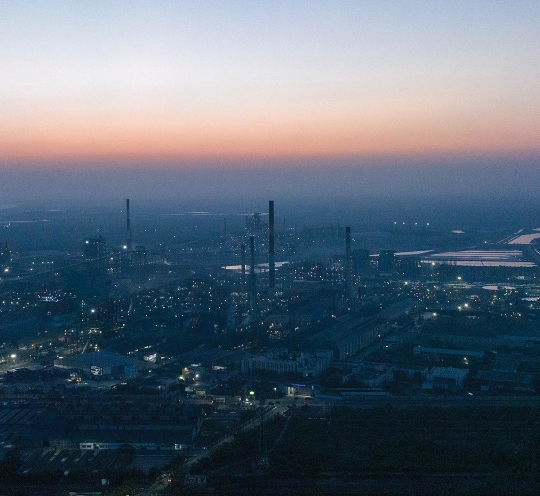
Tata Chemicals aims to maintain NOx, SOx and SPM well below regulatory limits through increasing the use of biomass for heating, diversifying the mix of renewable power, implementing energy efficiencies across all manufacturing facilities, entering supply arrangements for sustainable fuels like biomass, and reducing carbon emissions to achieve neutrality by 2045.
Energy-intensive processes within the chemical industry are undergoing scrutiny and redesign to enhance efficiency and minimise carbon emissions. Technologies like electrification, hydrogenation and carbon capture and utilisation (CCU) are being explored to decarbonise chemical production.
Tata Chemicals took a pioneering step in 2022 by building Europe's first CCU plant. The Company is also exploring to progress electric calcination and mechanical vapour re-compression in its production.
Chemical industry is a key contributor for developing sustainable energy eco-systems like e-mobility, solar economy, stationary energy storage systems and hydrogen economy by producing eco-friendly and energy-efficient materials. Tata Chemicals is exploring such opportunities within chemicals sector.
Tata Chemicals aims to be water positive and achieve zero waste to landfill by 2030 in India. Currently it consumes 100% fly ash, reuses > 3 lakh metric tonnes of undersized limestone. Its cement plant is built on circularity concept consuming solid waste generated in soda ash process. It is also investing in fermentation technologies which consumes sugar as renewable feedstock.
Chemical companies are adopting principles of green chemistries to drive circularity across 3 levers:
Biochemistry has emerged as one of the most preferred technologies for producing sustainable materials such as biodegradable polymers, biosurfactants, and biopesticides. The valorisation of molecules, atom efficiency, and recycling have become key mandates in developing new processes and products.
Our research and development division is actively promoting green chemistry through a fermentation platform, which encompasses the development of sustainable bio-chemicals such as bio-based surfactants, all aligned with the principles of the circular economy.
Post covid, countries are focussing on localising supply chain of critical / essential commodities. This shift has also led to trade tensions. In the United States, the Inflation Reduction Act incentivises local manufacturing, making it an attractive option for growth. Similarly, India's "Make in India" policy offers incentives to promote the localisation of manufacturing across various industries.
Transition from fossil fuel to renewable energy is gradually changing global supply chain, as green energy is largely localised.
Digitisation and AI facilitate real-time monitoring and control of chemical processes, leading to enhanced efficiency, reduced energy consumption and optimised resource utilisation. This results in heightened productivity and decreased operational costs.
AI-powered modelling and simulation tools accelerate product development and innovation within the chemical industry. Predictive modelling techniques enable virtual screening of chemical compounds, hastening the discovery of new materials, catalysts and formulations.
Beyond process optimisation and product development, AI is also making significant inroads in areas such as quality control, supply chain optimisation, safety and compliance. Digitisation and AI play pivotal roles in enhancing efficiency and effectiveness across these domains.